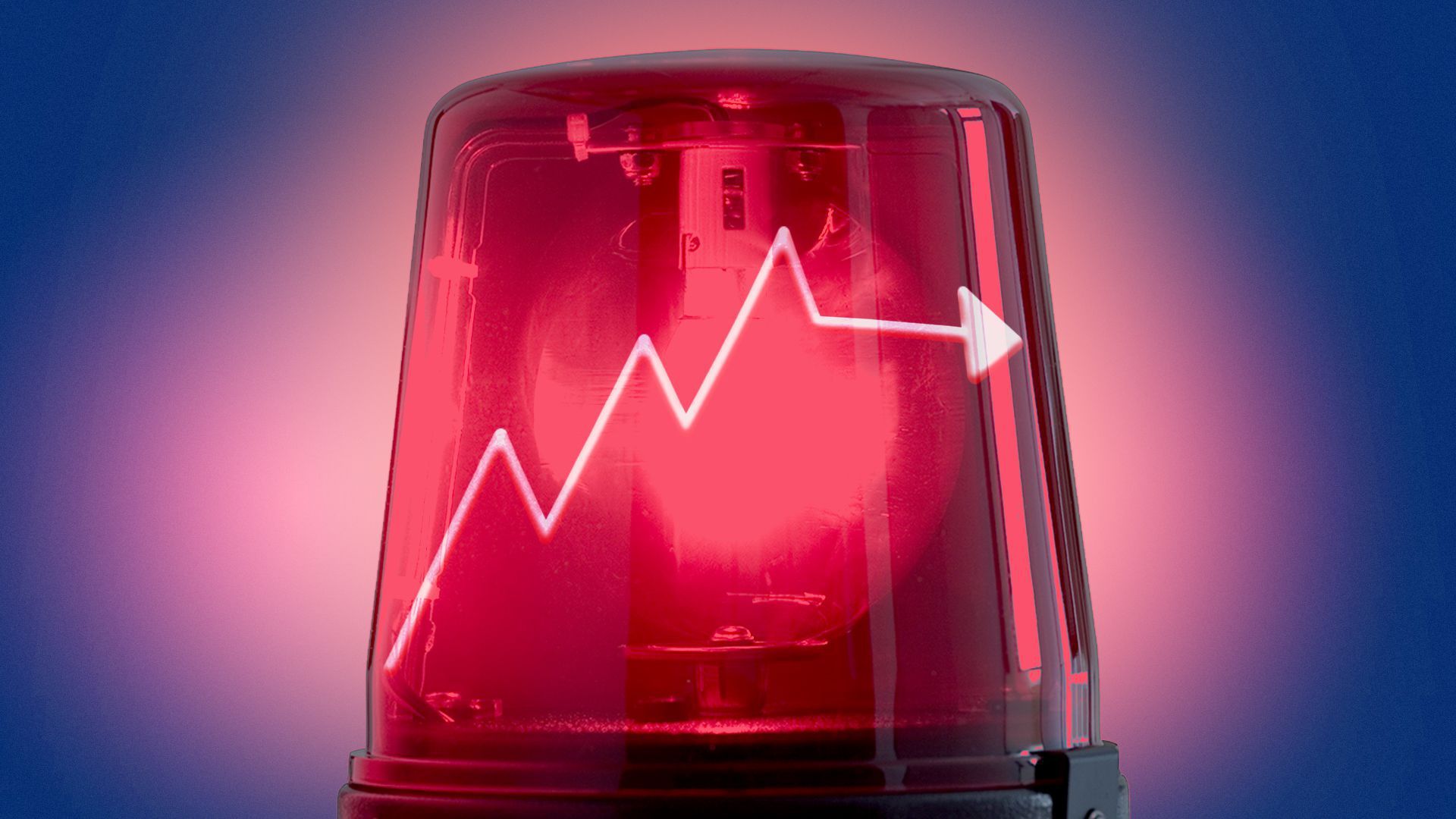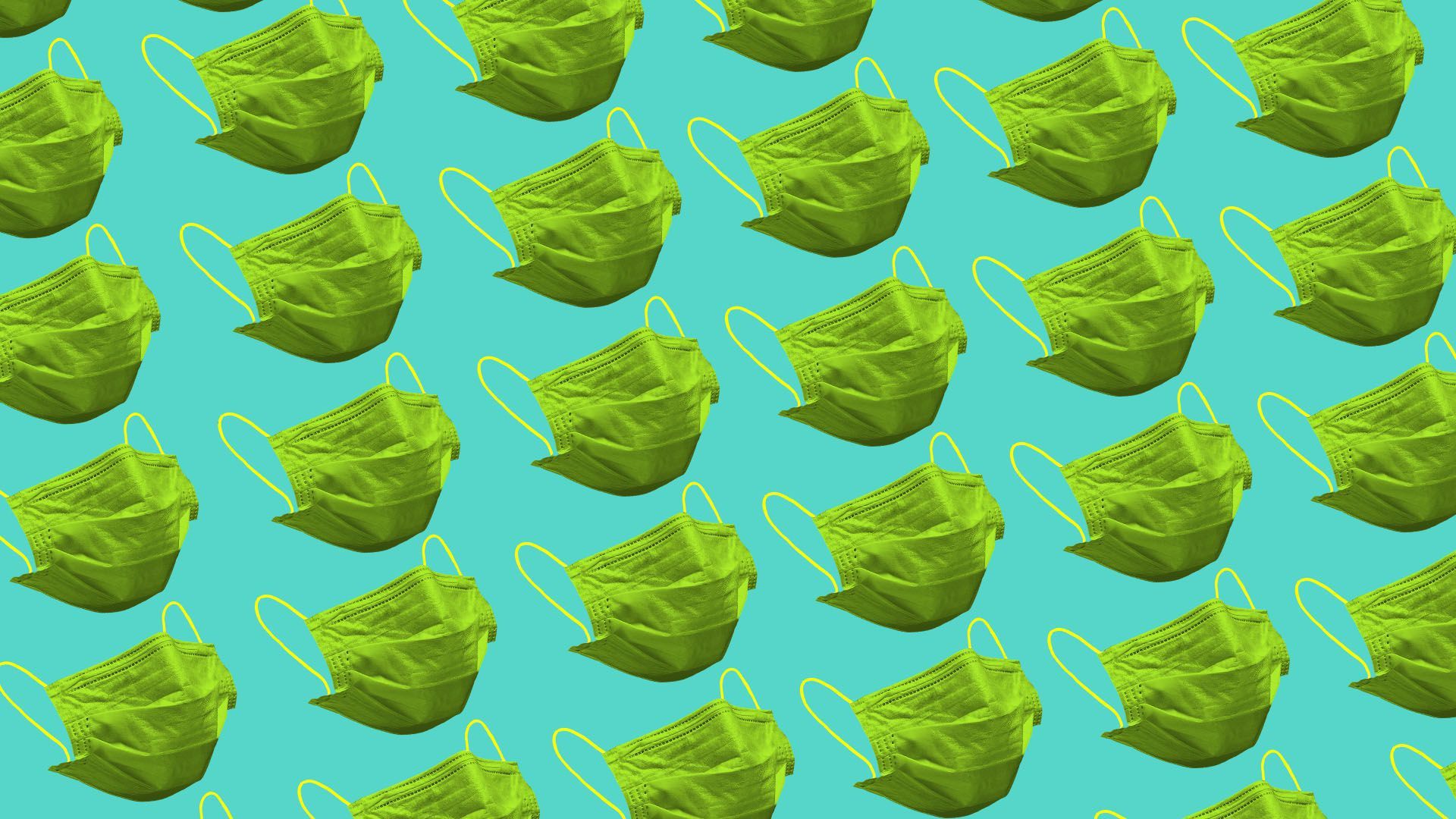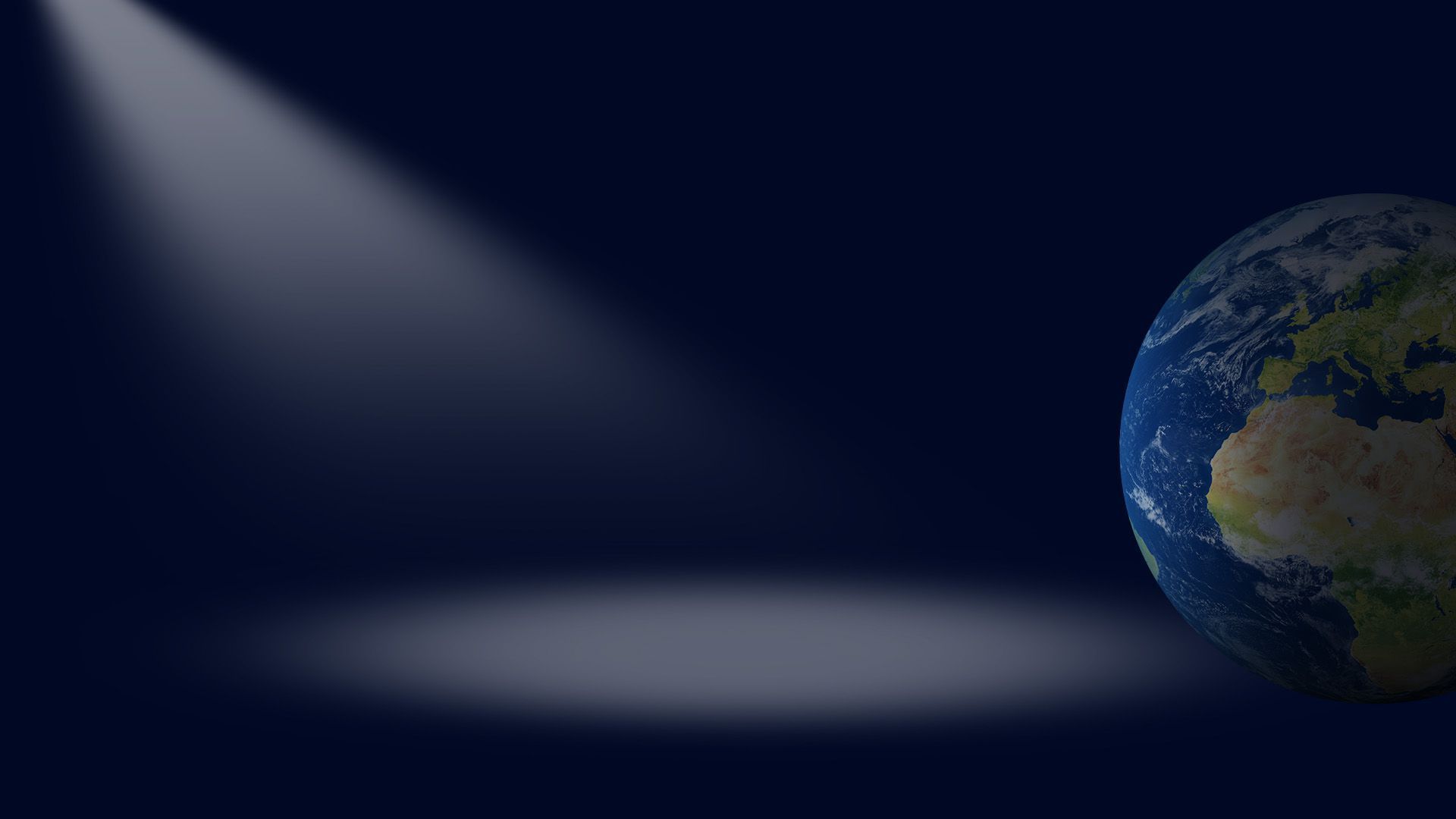| |
| |
| |
| Presented By the Campaign for Tobacco-Free Kids |
| |
| Axios AM |
| By Mike Allen ·Feb 25, 2022 |
| Hello, Friday! Bob Schieffer is 85. Smart Brevity™ count: 1,298 words ... 5 minutes. Edited by Noah Bressner. ⚖️ Situational awareness: President Biden has made his Supreme Court pick, Axios' Hans Nichols reports, and could reveal it as soon as today. The White House has said the announcement will come by Monday. |
| |
| |
| 1 big thing: Ukraine could tank boom |
 |
|
| Illustration: Annelise Capossela/Axios |
| |
| Russia's invasion of Ukraine creates a new wrench in the gears of the global economy that will simultaneously worsen inflation pressures and damage growth prospects. - That makes it a stagflationary shock, essentially making things worse on all economic fronts at once, Axios chief economic correspondent Neil Irwin writes.
Why it matters: So far in the pandemic recovery, major Western economies have had boomflation — strong growth with high inflation. What we may face now is the kind of inflation that could undermine the "boom" part and worsen the "flation" part. - It's not the kind of economic disruption that can be fixed with clever use of fiscal or monetary policy. It's all pain, no gain. The effects are likely to be most severe in Europe, where economic ties with Russia and Ukraine are deepest.
- But through the deeply interconnected global financial and commodity markets, the ripples are set to spread worldwide.
 Data: FactSet; Chart: Axios Visuals State of play: Financial markets remain highly volatile (above, via Axios Closer). - There'll be continued and escalating financial sanctions on Russia, damage to Ukraine's export industries and a high risk of further ripple effects from both physical and cyberattacks.
- All of those amount to a negative supply shock — meaning that the productive capacity of the world economy is simply lower than it was a few weeks ago.
Higher energy prices — already evident in commodity markets — directly feed into higher inflation. - The risk of disruption to Western European energy supplies and transportation networks and the potential for cyberattacks contributes to the strain on global supply networks that are already at their breaking point.
The United States is relatively insulated from the immediate economic damage, with its location an ocean away, strong domestic energy production and robust (maybe too-robust) consumer demand. - For the U.S., the direct impacts of the conflict are likely to push already-too-high inflation even higher.
- Still, the Fed is likely to view the crisis as a reason to move more gingerly in its monetary tightening campaign, as economic uncertainty grows, based on comments from several Fed officials this week.
The bottom line: Usually, geopolitical strife represents a short-term blip for financial markets and a buying opportunity for the gutsy. That could yet be the case with Ukraine, but the range of possibilities is ominous. |
    |
| |
| |
| 2. 🚨 China told Russia about U.S. intel on invasion |
| U.S. officials tried half a dozen times over three months to get China to help head off a Russian invasion of Ukraine — but were repeatedly rebuffed by Beijing, The New York Times reports (subscription). - Why it matters: The U.S. kept presenting Beijing with intelligence on Russia's buildup around Ukraine "and beseeched the Chinese to tell Russia not to invade," according to The Times. The Chinese, including the foreign minister and the ambassador to the U.S., said they did not think an invasion was in the works.
"After one diplomatic exchange in December," The Times says, "U.S. officials got intelligence showing Beijing had shared the information with Moscow." The Chinese said the U.S. "was trying to sow discord — and that China would not try to impede Russian plans and actions." |
    |
| |
| |
| 3. ⚡ New overnight: Missiles pound capital |
| Natali Sevriukova at her Kyiv home today after a rocket attack. Photo/Emilio Morenatti/AP Missiles pounded Kyiv today as Ukraine President Volodymyr Zelensky pleaded with the world to do more, saying sanctions announced so far were not enough, Reuters reports. - Air raid sirens wailed over the capital city of 3 million people. Some sheltered in underground metro stations.
Zelensky said in a video message that Russian troops are coming for him. But he vowed to stay in Kyiv. - The enemy, he said, "has marked me down as the Number 1 target. My family is the Number Two target. They want to destroy Ukraine politically by destroying the head of state."
 Data: The New York Times, Reuters, Mapbox/OSCE. Map: Will Chase and Jared Whalen/Axios Being there: The military said today that a group of Russian spies and saboteurs was seen in a district on the outskirts of Kyiv, AP reports. - Police told people not to exit a subway station in the city center because there was gunfire in the area.
Ukraine servicemen on armored personnel carriers yesterday in the Donetsk region, eastern Ukraine. Photo/Vadim Ghirda/AP 💡 Zoom out: Hillary Rodham Clinton and her longtime adviser Dan Schwerin write for The Atlantic today that Ukraine "is one flash point in a larger global struggle between democracy and autocracy ... that stretches from the steppes of Eastern Europe to the waters of the Indo-Pacific to the halls of the U.S. Capitol." - "Whether Putin continues testing NATO's resolve, and whether the trajectory of our competition with China veers toward conflict, will in part be driven by Russian and Chinese perceptions of America's decline or resilience," they write.
- Keep reading.
In photos: How Russia's attack is unfolding in Ukraine. |
    |
| |
| |
| A message from the Campaign for Tobacco-Free Kids |
| Big Tobacco is still targeting our kids with flavored e-cigarettes |
| |
 |
| |
| The tobacco industry continues to hook kids on flavored e-cigarettes loaded with massive doses of nicotine. The impact: Over two million kids use e-cigs, and each day without action leaves more kids at risk. To protect kids, FDA needs to eliminate flavored e-cigs now. Learn more. |
| |
| |
| 4. 📷 Ukraine's colors light world |
| Photo: Filippo Monteforte/AFP via Getty Images Buildings around the world were lit last night in the colors of Ukraine's flag, including the Colosseum in Rome (above) ... Photo: Justin Tallis/AFP via Getty Images ... 10 Downing Street in London, the prime minister's residence and office ... Photo: Javad Parsa/NTB via AP ... and Oslo City Hall in Norway. - Go deeper: "Protests Erupt Around the World ... People gathered from New York City to Warsaw to 'Stand With Ukraine.'" (Bloomberg)
|
    |
| |
| |
| 5. Great Resignation could be permanent |
 |
|
| Illustration: Shoshana Gordon/Axios |
| |
| America's youngest generation entered the job market amid the Great Resignation — and that has changed the way they view working, Axios' Erica Pandey writes. - Why it matters: This cohort will make up one-third of U.S. labor by 2030, shaping the future of work.
What's happening: In the spirit of the Great Resignation, Gen Z is far likelier than older generations to job-hop, Karin Kimbrough, chief economist at LinkedIn, told Erica during an Axios event yesterday. (Watch the video.) - And they plan to keep it up: Some 25% of Gen Zers say they hope or plan to leave their employers within the next six months, LinkedIn found. Compare that with 23% of millennials, 18% of Gen X and just 12% of boomers, per LinkedIn data.
A whopping 75% of Gen Zers say they're willing to switch career paths entirely and look for jobs in new industries. Less than half of those older say the same. |
    |
| |
| |
| 6. CDC to loosen mask guidance |
 |
|
| Illustration: Sarah Grillo/Axios |
| |
| The CDC plans to announce as soon as today that it has created new metrics for determining when people should use masks and take other COVID precautions, sources tell Axios' Caitlin Owens. - Why it matters: The new metrics will suggest universal masking only in places being hit hardest by the virus.
Between the lines: Most Americans will no longer be advised to wear masks in indoor public settings. The goal is to move away from using case counts alone to determine when to mask, a source involved in developing the system tells us. - The CDC currently recommends universal indoor masking in areas of substantial or high transmission, which includes the vast majority of U.S. counties.
The new benchmarks will instead tie masking recommendations to a combination of a community's level of cases, hospitalizations and hospital capacity, the source said. |
    |
| |
| |
| 7. Climate pushed out of spotlight |
 |
|
| Illustration: Shoshana Gordon/Axios |
| |
| Climate change is no longer at the top of the agenda for world leaders and many executives. It's been shoved aside by Ukraine, COVID and inflation, Axios' Andrew Freedman writes. - Why it matters: The recent developments come at a hinge point for climate action. The most ambitious Paris Agreement temperature target is perilously close to slipping out of reach.
Studies show the world only has about a decade to slash emissions enough to limit warming to 1.5°C above preindustrial levels by 2100. |
    |
| |
| |
| 8. Charted: What the world watches |
 Data: Company filings. Chart: Axios VIsuals Go deeper: Get the latest on Discovery preparing to close its merger with WarnerMedia, from Tim Baysinger of Axios Pro Media Deals (coming soon) and Axios Media Trends author Sara Fischer. |
    |
| |
| |
| A message from the Campaign for Tobacco-Free Kids |
| Big Tobacco targets our kids — FDA must act to stop them |
| |
 |
| |
| Over two million kids are using e-cigarettes, putting their health at risk. The reason: Tobacco companies hook kids with flavored e-cigarettes loaded with massive doses of nicotine. The solution: FDA must eliminate flavored e-cigarettes without further delay. Learn more. |
| |
| 📬 Sign up here for your own personal copy of Axios AM and Axios PM. |
 | Bring the strength of Smart Brevity® to your team — more effective communications, powered by Axios HQ. | | |
No comments:
Post a Comment